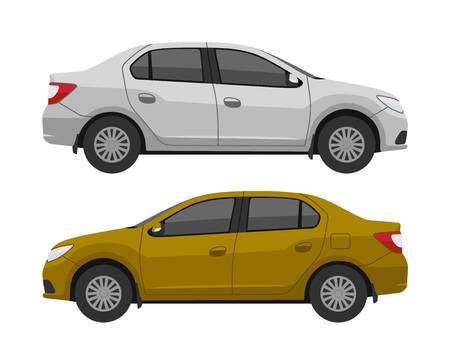Introduction to Car Subscription Services
The landscape of personal mobility is rapidly evolving, and nowhere is this shift more apparent than in the growing popularity of car subscription services across the UK. As urbanisation intensifies and consumer attitudes towards traditional car ownership shift, drivers are increasingly seeking flexible, hassle-free alternatives to owning or leasing vehicles. Car subscriptions offer a disruptive model that blends convenience, flexibility, and all-inclusive motoring into a single monthly payment—making it an appealing option for many Britons who value adaptability in their lifestyles. Unlike outright purchase or conventional leasing arrangements, car subscription services typically bundle insurance, maintenance, road tax, breakdown cover, and even roadside assistance into one straightforward fee. This streamlined approach removes much of the administrative burden and unexpected costs associated with vehicle ownership, offering a user experience akin to popular digital subscription models found in streaming or technology sectors. The table below highlights key differences between car subscriptions, traditional ownership, and leasing within the UK context:
| Car Subscription | Traditional Ownership | Leasing | |
|---|---|---|---|
| Upfront Cost | Low/None | High (purchase price) | Moderate (initial deposit) |
| Contract Length | Flexible (month-to-month options) | N/A (ownership until sale) | Fixed (usually 2-4 years) |
| Included Services | Insurance, maintenance, tax, breakdown cover | Owners responsibility | Varies; often excludes insurance & maintenance |
| Mileage Limits | Usually included/flexible | No limits | Strict limits apply |
This innovative model is particularly well-suited to the UK’s metropolitan areas where parking restrictions, congestion charges, and Ultra Low Emission Zones (ULEZ) make flexible access to vehicles highly desirable. As we delve further into this article, we will examine how these services are reshaping the British motoring experience by catering to new consumer expectations and redefining what it means to drive in modern Britain.
2. Current Landscape of Car Subscriptions in the UK
As car subscription services gain traction across Britain, the automotive landscape is experiencing a significant transformation. Several major providers have established themselves as key players, each offering unique propositions tailored to British driving needs. Leading the market are firms like Cazoo, Onto, and Wagonex, alongside traditional manufacturers such as Volvo and Jaguar Land Rover who have introduced their own subscription programmes. The table below highlights some of the notable offerings:
| Provider | Key Features | Monthly Price Range (GBP) | Vehicle Options |
|---|---|---|---|
| Cazoo | Flexible terms, insurance & maintenance included | £300–£800+ | Saloons, SUVs, Electric Vehicles |
| Onto | Focus on electric cars, charging access included | £400–£1,000+ | EVs only (Renault Zoe, Tesla Model 3, etc.) |
| Wagonex | Broad vehicle selection, short- or long-term options | £350–£1,200+ | Economy to premium models |
| Volvo Subscription | No deposit, rolling 3-month contracts | £559–£859+ | Volvo range (mild hybrids & plug-in hybrids) |
Recent Market Trends
The UK market has witnessed marked growth in consumer interest for car subscriptions over the past two years. Demand is being fuelled by shifting attitudes towards car ownership—particularly among urban dwellers and younger drivers seeking flexibility and convenience. Notably, the surge in electric vehicle adoption has dovetailed with subscription services’ offerings of EVs without the long-term financial commitment associated with outright purchase or leasing.
Providers are differentiating through digital-first platforms and all-inclusive pricing structures that cover insurance, tax, servicing and breakdown assistance—features that resonate strongly with British motorists wary of unexpected costs.
Consumer Response: A Shift in Mindset
The British public’s response to car subscriptions has been largely positive, especially among tech-savvy consumers and those living in cities like London, Manchester and Birmingham where multi-modal transport is common. While traditionalists still prefer outright ownership or PCP finance deals, a growing segment values the ‘all-in-one’ simplicity and ability to swap vehicles at short notice.
However, some scepticism remains regarding perceived higher monthly costs compared to leasing or buying second-hand. Yet for many, the absence of hefty deposits and the bundled nature of running costs are compelling advantages. As more providers enter the market and competition intensifies, it is likely that pricing will become increasingly competitive—further broadening appeal across different demographics.

3. Benefits and Challenges: The British Perspective
When considering car subscription services in the UK, it is essential to weigh both their advantages and potential drawbacks, especially in the context of local motoring habits, financial expectations, and practical needs. This balanced analysis examines how these innovative models fit into British lifestyles.
Advantages of Car Subscription Services
| Advantage | Description | UK Relevance |
|---|---|---|
| Cost Predictability | All-inclusive monthly fee covers insurance, tax, maintenance, and breakdown cover. | Helps British drivers avoid unexpected expenses, particularly beneficial given fluctuating insurance premiums and rising repair costs. |
| Flexibility | No long-term commitments; users can switch cars or cancel with short notice periods. | Caters to urban professionals, expats, or those in transitional phases who value adaptability over ownership. |
| Convenience | One-stop solution for all vehicle-related services, often with delivery to your door. | Suits busy city dwellers in places like London and Manchester, where time is at a premium and hassle-free solutions are prized. |
| Access to Newer Vehicles | Frequent upgrades mean access to the latest models with improved safety and emissions standards. | Appeals to eco-conscious consumers and those wishing to comply with Ultra Low Emission Zone (ULEZ) regulations. |
Potential Drawbacks and Challenges
| Challenge | Description | Impact on UK Drivers |
|---|---|---|
| Total Cost Over Time | Monthly fees may exceed traditional PCP or finance deals when considered over several years. | Might deter cost-sensitive families or those accustomed to driving older vehicles for extended periods. |
| Mileage Restrictions | Most subscriptions impose annual mileage limits, with surcharges for excess miles. | A concern for commuters from rural areas or frequent motorway travellers who regularly exceed average UK mileages. |
| Lack of Ownership Benefits | No equity built up; no opportunity to sell or modify the car. | This may not appeal to enthusiasts or those who view car ownership as a long-term investment or personal project. |
| Availability & Choice Limitations | The range of vehicles available can be limited compared to the broader used-car market. | Particularly restrictive outside major cities where delivery networks and model choices are narrower. |
The Nuances of UK Motoring Needs
The British market brings unique considerations: urban congestion charges, variable insurance rates by postcode, and a growing appetite for electric vehicles due to government incentives. Car subscription models that address these nuances — such as including EV charging support or flexible insurance options — will have the greatest resonance. Ultimately, while the subscription approach offers genuine convenience and flexibility suited to modern British life, it is not without its compromises. Careful comparison against traditional purchase or leasing routes remains crucial for discerning UK motorists seeking both value and practicality.
Technology and Sustainability Implications
Car subscription services in the UK are not just reshaping ownership models—they are also at the forefront of technological integration and sustainability. By leveraging connected technology, these platforms offer a seamless, data-driven experience that appeals to digitally savvy drivers while supporting the nation’s ambitious environmental goals. Subscriptions typically include access to the latest vehicle models, many of which feature advanced telematics, real-time diagnostics, and app-based controls that enhance safety, convenience, and efficiency. Furthermore, these services align with the government’s push for greener transport by prioritising electric vehicles (EVs) and hybrids within their fleets.
Integration with Connected Technology
Modern car subscription providers utilise digital platforms to manage everything from booking and delivery to in-car connectivity and maintenance alerts. The integration of smart technologies enables users to track vehicle health, driving habits, and even carbon footprint via intuitive dashboards. Features such as keyless entry, remote locking, over-the-air software updates, and compatibility with smart home devices are increasingly standard.
| Feature | Traditional Leasing | Subscription Services |
|---|---|---|
| Connected Apps | Optional/Basic | Comprehensive & Standard |
| Real-time Diagnostics | Limited | Fully Integrated |
| Remote Access Features | Rare | Commonplace |
Sustainability: Accelerating Greener Transport
The environmental impact of subscription services is particularly notable in the UK context. Providers are proactively expanding their EV offerings to support the national transition away from fossil fuels. Subscribers gain easier access to new-generation electric cars without long-term commitments or substantial upfront costs—removing a major barrier for many would-be EV drivers. Several providers also partner with renewable energy suppliers to power charging infrastructure, further reducing emissions.
Benefits of Subscription Models for Sustainability
| Sustainability Aspect | Description |
|---|---|
| Lower Emissions Fleet | Frequent vehicle upgrades ensure more efficient, cleaner cars on the road. |
| Facilitated EV Adoption | No deposit schemes make trying an EV risk-free for consumers. |
| Circular Economy Support | Vehicles are maintained, reused, and recycled efficiently by operators. |
Looking Forward
The synergy between cutting-edge technology and sustainability within car subscription services represents a step change for UK mobility. As these models continue to evolve—with enhanced digital features and a stronger focus on zero-emission vehicles—they will likely become central to both consumer convenience and the broader decarbonisation strategy for British transport.
5. Impact on Traditional Car Ownership and Dealerships
The emergence of car subscription services in the UK is prompting a significant shift within the automotive landscape, with notable implications for traditional car ownership models and dealership operations. This new mobility solution challenges the conventional approach to buying or leasing vehicles, offering British consumers unprecedented flexibility, convenience, and predictability in motoring costs.
Disruption to Traditional Car Sales and Leasing
Subscription models are fundamentally altering consumer expectations by bundling insurance, maintenance, tax, and roadside assistance into one monthly fee. This all-inclusive approach appeals particularly to younger urban drivers and professionals who prioritise hassle-free mobility over asset ownership. As a result, car dealerships may witness a decline in outright purchases and long-term lease agreements, especially among demographics that value flexibility over commitment. The table below contrasts key features of each approach:
| Traditional Purchase | Leasing | Subscription Services | |
|---|---|---|---|
| Upfront Cost | High deposit or full payment | Initial rental (lower than purchase) | Minimal or no deposit |
| Commitment Length | Typically 3-5 years or more | 1-4 years fixed term | Monthly rolling or short-term contracts |
| Included Services | None (buyer responsibility) | Some (maintenance optional) | All-inclusive (insurance, tax, service) |
| Flexibility | Low (ownership locked-in) | Moderate (end-of-term swap) | High (easy vehicle swaps/returns) |
| Total Cost Transparency | Variable/risk of unexpected bills | Predictable payments but extras possible | Fixed monthly payment covers all |
The Evolving Role of Dealerships in Britain
The rise of subscriptions compels UK dealerships to reassess their business models. Rather than solely relying on traditional sales targets, progressive dealers are exploring partnerships with subscription providers or launching their own branded subscription schemes. This hybrid approach allows them to cater to both conventional buyers and the growing segment seeking flexible mobility solutions.
Complementing Rather Than Replacing Traditional Models?
It is important to note that while disruption is evident, the subscription model need not wholly replace existing sales and leasing channels. For many Britons—particularly those living outside major cities—vehicle ownership remains culturally ingrained and economically rational. However, for urban dwellers, young professionals, or those with shifting mobility needs, subscriptions offer an attractive alternative.
The Future: A Mixed Mobility Marketplace
The likely outcome is a diversified market where car subscriptions sit alongside sales and leases as complementary offerings. Dealers who adapt early will benefit from expanded customer bases and recurring revenue streams. Those resistant to change risk being left behind as consumer preferences evolve and digital-first competitors gain traction across the UK’s motoring sector.
6. The Future of Driving: What Lies Ahead
As car subscription services continue to gain traction across the UK, their potential to reshape the nation’s driving landscape cannot be underestimated. With increasing urbanisation, evolving consumer expectations, and a growing emphasis on sustainability, the subscription model is poised to have far-reaching implications on driving culture, urban mobility, and motorist behaviours.
Shaping Driving Culture
The traditional British attachment to car ownership is gradually being challenged by a new generation of motorists who value flexibility over possession. Subscription services foster a mindset shift—from status-driven ownership to utility-driven access. This cultural change is especially pronounced among younger drivers and urban dwellers who prioritise convenience, affordability, and eco-friendly options.
Impact on Urban Mobility
Car subscriptions offer an opportunity to alleviate some of the persistent issues associated with urban transport in the UK. These include congestion, parking shortages, and high emissions. By providing easy access to newer, low-emission vehicles or even electric models without long-term commitment, subscription schemes can complement public transport networks and contribute to cleaner, more efficient cities.
Comparative Impact Table: Traditional Ownership vs Subscription Services
| Aspect | Traditional Ownership | Subscription Service |
|---|---|---|
| Flexibility | Low (long-term commitment) | High (monthly rolling contracts) |
| Upfront Costs | High (deposit & purchase price) | Low (all-inclusive fee) |
| Vehicle Choice | Fixed (one vehicle) | Varied (swap options available) |
| Sustainability | Dependent on owner’s choice | Access to latest low-emission models |
Evolving Motorist Behaviours
The ease of switching between vehicle types—such as electric cars for city commutes and SUVs for weekend trips—encourages motorists to tailor their driving habits to their immediate needs. Additionally, the all-inclusive nature of subscriptions (covering insurance, maintenance, and tax) reduces administrative burdens and unexpected expenses, fostering a more carefree approach to motoring.
Forecasted Trends in the Next Five Years
- Accelerated adoption of electric vehicles via subscription platforms
- Increased integration with multi-modal transport solutions (e.g., car clubs, ride-hailing)
- A decline in private vehicle ownership rates among urban populations
- The emergence of data-driven personalisation for user experience and fleet management
The trajectory for car subscription services in the UK signals a future where motorists enjoy greater autonomy and adaptability. While challenges such as regulatory alignment and infrastructure development remain, these innovative models are set to redefine not just how Britons drive—but how they perceive mobility itself.

